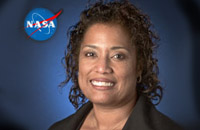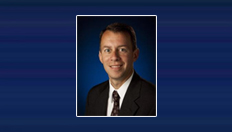NASA
-
NASA\'s sustainability policy is to execute NASA\'s mission without compromising our planet\'s resources so that future generations can meet their needs. Details from NASA\'s Olga Dominguez.
October 08, 2010 -
NASA will host two national science competitions that challenge students - six through 12 - to develop and prepare a microgravity experiment. Both competitions are open to teams across the U.S. and Puerto Rico, and they can be formed from any type of organization or club, such as a science class, a group of friends, or youth group, and each team must have an adult advisor. A panel of NASA scientists and engineers will evaluate and select the best proposals by December first. The winning teams will design and build experiments that will be conducted in the 2.2 Second Drop Tower at NASA\'s Glenn Research Center in Cleveland. When an experiment is \"dropped\" into the 79-foot tower, it experiences weightlessness for 2.2 seconds. The top four teams get an all-expenses-paid trip to conduct their experiments with NASA personnel.
September 27, 2010 -
NASA CIO Linda Cureton may have come from inside NASA, but she tells Federal News Radio\'s Jason Miller she\'s still learning a lot. September 23, 2010
September 22, 2010 -
How does a tech giant like NASA control mission costs? Doctor Ron Sega, a professor at Colorado State University, says NASA needs to come up with a comprehensive integrated strategy.
September 22, 2010 -
What makes one federal agency better than another in terms of worker contentment? One of Washington\'s good government groups did some additional digging in the wake of the federal \"Best Places to Work\" survey and found that better communication using social networking tools helped at least two agencies move up the list.
September 21, 2010 -
The National Institutes of Health has awarded the first new grants under the Biomedical Research on the International Space Station (or BioMed-ISS) initiative, a collaborative effort between NIH and NASA. Using a special microgravity environment that Earth-based laboratories cannot replicate, researchers will explore fundamental questions about important health issues, such as how bones and the immune system are weakened. The National Laboratory at the International Space Station provides a virtually gravity-free - or microgravity - environment where the cellular and molecular mechanisms that underlie human diseases can be explored. Scientists will conduct their experiments in two stages. The first is a ground-based preparatory phase to allow investigators to meet select milestones and technical requirements. The second is an Space Station experimental phase. That will include preparing the experiments for launch, working with astronauts to conduct them on the Space Station, and then performing subsequent data analyses on Earth.
September 14, 2010 -
Anti-US hacker takes credit for \'Here you have\' worm
September 13, 2010 -
The space agency\'s experience in reducing the number of its e-mail systems could serve as a model for others who are going down a similar path. NASA\'s benefits include cost savings, better cybersecurity and scalability to deal with the expanding need for mobile access.
September 10, 2010 -
Federal News Radio asked you which agency has the best transportation and parking options as part of our Best of the Federal Government series. The results are now in.
September 03, 2010 -
When NASA scientists were stymied last year in trying to devise a formula for predicting solar flares, they took an unusual approach: They posted their problem online, and offered a prize to anyone who could solve it. One requirement: the person with the winning solution would have to fork over exclusive rights to the idea - in exchange for a $30,000 prize. 579 people considered the challenge, while only five submitted entries. The winner was a retired radio frequency engineer from New Hampshire who offered an algorithm that may be a first step in helping NASA predict when solar particles might endanger astronauts or spacecraft. Top officials within the General Services Administration and the Office of Management and Budget have called the contest the beginning of a huge movement. Now, the website challenge-dot-gov allows agencies to post challenges, create blogs and discussions, and reward winners with an array of incentives.
September 03, 2010 -
NASA has been asked by the Chilean government through the U.S. Department of State to provide technical advice that might assist the trapped miners in Chile. Spokesman Michael Curie explains.
September 02, 2010 -
GSA will unveil the Challenge.gov platform in the next few months where all agency competitions will be posted. Some agencies already are asking experts and employees for help. NASA will run 34 competitions before the end of December.
September 01, 2010 -
August 30th and September 1st Advocate on matters concerning agency-wide technology policy and programs.
August 31, 2010 -
NASA\'s Mars Rover Project launched six years ago. Project manager, Dr. John Callas explains where the project stands now.
August 27, 2010 -
As part of our Best of the Federal Government series, we asked you to nominate the agencies with the best transportation or parking options. Vote now for your favorite!
August 27, 2010




